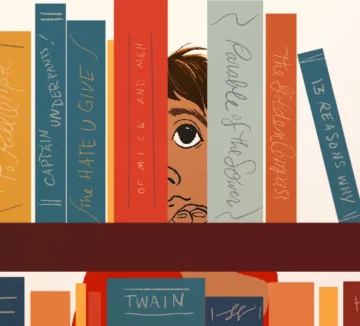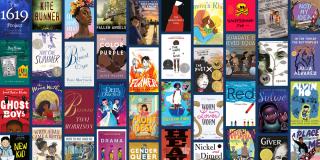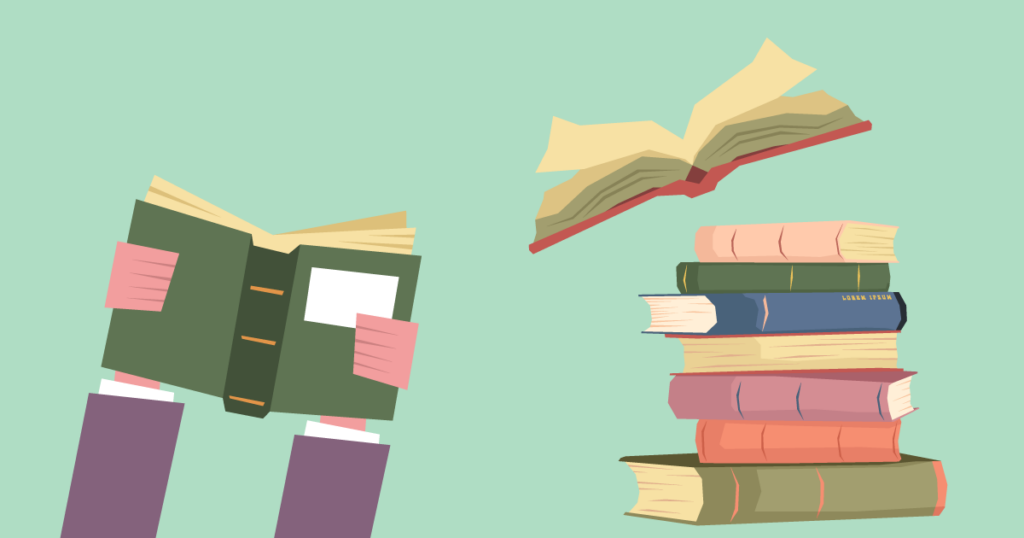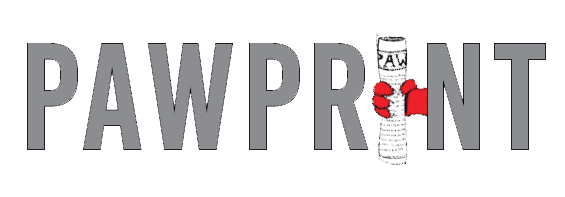
In recent years, literary activists and teachers have brought the issue of book banning to the forefront. The continuous effort to ban books within the education system forces teachers to teach from one perspective. It also forces students to think from that perspective. Patricia Maniaci, a literature and humanities professor at Maryville University, talked to me about her stance on book banning.
Bailey: Over the course of some of your classes, we have briefly discussed the topic of book banning. It’s recently becoming a really hot topic. Do you think there are valid reasons to ban and challenge a book?
Professor Maniaci: No. It’s one thing for an adult to decide on what they think is appropriate for their child to read. Still, when the decision to ban literacy materials by a specific group based on one particular point of view, especially in the public commons, it’s a direct violation of First Amendment rights.
Bailey: I definitely agree with you! Do you think the label we give these books, banned vs challenged, makes a difference in how important the books is?
Professor Maniaci: If by important you mean more desirable because of people, especially teenagers, will gravitate towards what is forbidden then yes.
Bailey: I agree, when I’m told not to do something, it makes me want to do it even more. So this brings me to the question of have you ever read a book that was banned or challenged? And if so, what did you think of it?
Professor Maniaci: All of the time and I make it a point to teach them as much as possible. My top three favorite banned books are Beloved by Toni Morrison, To Kill a Mockingbird by Harper Lee, and Fahrenheit 451 by Ray Bradbury. And I love every one for very different reasons, but one of the connections they share is how they expose oppressive systems and the harm those systems inflict on people.
Bailey: I remember reading those books in high school, and I never really understood why they were placed on the banned list. Now that those books have been placed on the list, does it make a difference in how you view the book?
Professor Maniaci: Yes. When a book is banned or challenged, it tells me the ideas in that book are so powerful those who are in power are scared of those ideas because they are terrified of losing control. More often than not, those books help reveal truths from communities that are otherwise being silenced, oppressed, and underrepresented.
Bailey: Why do you think someone would want these books banned?
Professor Maniaci: There are several reasons, but the biggest one is ignorance and fear, plain and simple. Half of the time, when parents want a book banned or school boards refuse a book, they either haven’t read it and going on someone else’s opinion, or they didn’t understand it. Their ego prevents them from asking questions and facing some uncomfortable truths and realizations. The other reason is eradication. The quickest way to discredit, remove and silence a community or culture is to remove any evidence it exists. That evidence is generally found in literature.

Bailey: This is something that we talk about all the time in your classes. What harm if any is caused by having a book banned?
Professor Manicai: There is a lot of harm, but the bottom line is it’s exclusionary. Banning a book sends the message that the author, their story, truths, experiences, and the community they belong to and represents don’t matter; their very existence doesn’t matter. It creates a moral panic. Moral panics are good for one thing and one thing only: division.
Bailey: I feel like book banning has become a topic that has become relevant in the past few years. Why do you think it is important to talk about banned/ challenged books?
Professor Maniaci: Books that are challenged or usually banned present truths, topics, and difficult conversations for people to confront. Peter Bromberg, a library advocate, said it best. ‘’When we avoid difficult conversations, we trade short-term discomfort for long term dysfunction.’’
Bailey: That is an amazing quote! Even though you are a college professor and don’t currently teach students grades k-12, how do you think book banning impacts your students?
Professor Maniaci: It directly affects their ability to think critically and creatively, affecting their academics and career. It is painfully apparent to me as an educator which students come from school districts where school boards did not prioritize literacy and books were banned. Those students have a steep learning curve when it comes to relating to assignments and their peers. They cannot join the conversation and are alienated academically and socially.
Bailey: That is very true! So, after all of this, the big question is how can individuals combat the issue of book banning?
Professor Maniaci: There are three ways book banning can be combated, and they are all interconnected. The first is to support your local library. The public library is not just about books. The number of free programs and resources they provide for a community is impressive. The second is to read. It doesn’t matter if it’s a physical copy, digital copy, or an audiobook. READ. Especially the books that are challenged or banned. If a group or institution is challenging or banning a book, there is a reason they don’t want those ideas circulating. Don’t let someone tell you how or what to think. And the third is to vote and be informed about what and who you are voting. And if you don’t understand the ballot measures, ask a librarian.
Bailey: Professor Maniaci, you had so many good points on book banning. Thank you so much for taking the time out of your day to interview and bring awareness to book banning!
It is very insightful to get a professor’s viewpoint on the topic of book banning. Challenging and banning books can be detrimental to a student’s learning, even in higher education. Reading strengthens many cognitive muscles. Reading allows us to see different perspectives from different cultures or marginalized groups. When school boards decide to ban books, it limits the amount of exposure that students receive on these issues. So go to your local library and READ.







